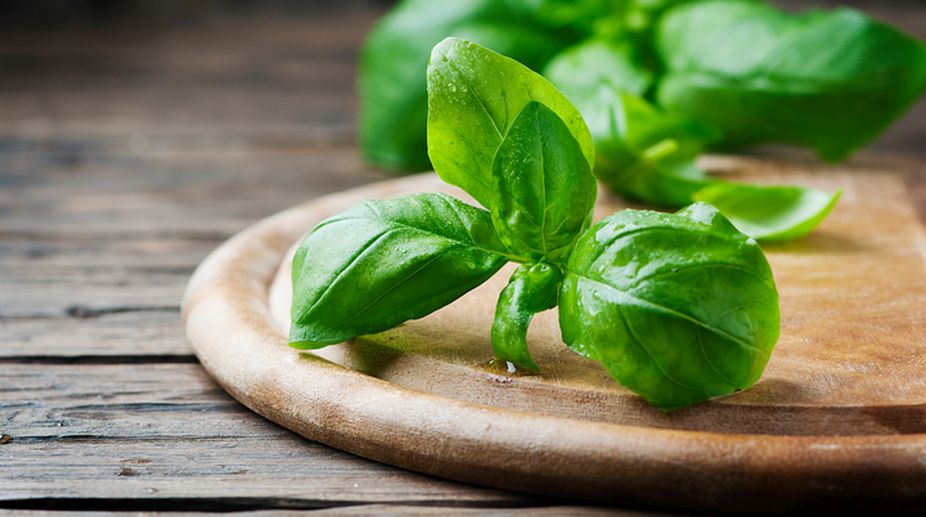In recent years, increased research and awareness of plant phytochemicals have brought basil to the forefront of nutritional value herbs. It has been found to exhibit antimicrobial, anti-inflammatory, anti-diabetic, antioxidant and anti-cancer activity. Nowadays, more than a culinary herb, it is used to protect human bodies against bacteria, viruses, chronic diseases and illnesses.
Basil comes in more than 60 varieties. Few popular among them are – large leaf, sweet lemon, Thai and holy basil. They all fall into three main types – sweet, purple and bush. Each has its own characteristics – taste, colour and aroma.
Advertisement
According to the type, basil can be green, purple or white in colour with a scent resonant of lemon, cloves, cinnamon, camphor or thyme. Italian large leaf basil is used in Mediterranean cooking and the other varieties go judiciously with Vietnamese and Indian cuisine. It appears in a wide range of dishes from salads to sauces and desserts to tangy dishes.
The fragrant essence of basil combines well with rosemary and thyme in many dishes. It only takes a few leaves to enhance a simple dish. Undoubtedly, basil makes up a healthy and tasty diet with any food stuff..
Some non-edible kinds are used for ornamental purposes or to ward off garden pests.
Basil has excellent nutritional profile as well. It is rich in vitamin K, manganese, copper, vitamin A, vitamin C, calcium, iron, folate, magnesium and omega-3 fatty acids. Belonging to the mint family, the aromatic herb has medicinal properties rather than its culinary value that extends the herb’s uses far beyond the humble pesto. The whole plant, be its leaves, stems, flowers, roots or seeds, contains essential oils and phytochemicals that have biological activity in human body. It has been used in plant-based tinctures, syrups and ointments.
In Ayurveda, it is considered as an effective treatment for gastric, hepatic, respiratory and inflammatory disorders, headache, fever, anxiety, nausea and hypertension. The roots of the holy plant is a topical treatment to speed wound healing. Basil contains high quality of (E) beta caryophyllene (BCP). It may be useful to treat arthritis and inflammatory bowel diseases.
Royal Pharmaceutical Society’s annual event revealed that extract of holy basil can reduce swelling by up to 73 percent after 24 hours. Holy basil extract prevents damage by some free radical in the liver, brain and heart. The herb has anti-aging properties and has been used as a youth-promoting substance. Vitamin A content of basil helps prevent cholesterol in blood from oxidizing, helping to prevent atherosclerosis, heart attacks and stroke. Since basic extract reduces sugar, it may have the potential to inhibit diabetes.
Basil plant is easy to grow and tend. You can maintain them both indoors and outdoors. It’s also simple to dry basil leaves. Warm your oven to 140 degrees and place a single layer of basil leaves on a baking sheet for five minutes. Turn off the oven. Pop the baked leaves in a pan for 10 minutes. Remove from pan and cool. Store immediately in an airtight container. Keep it away from sunlight.
Among all herbs, Basil is one of the favourites. Incorporating it in your balanced-diet plan is one of the best ways to optimise health.











